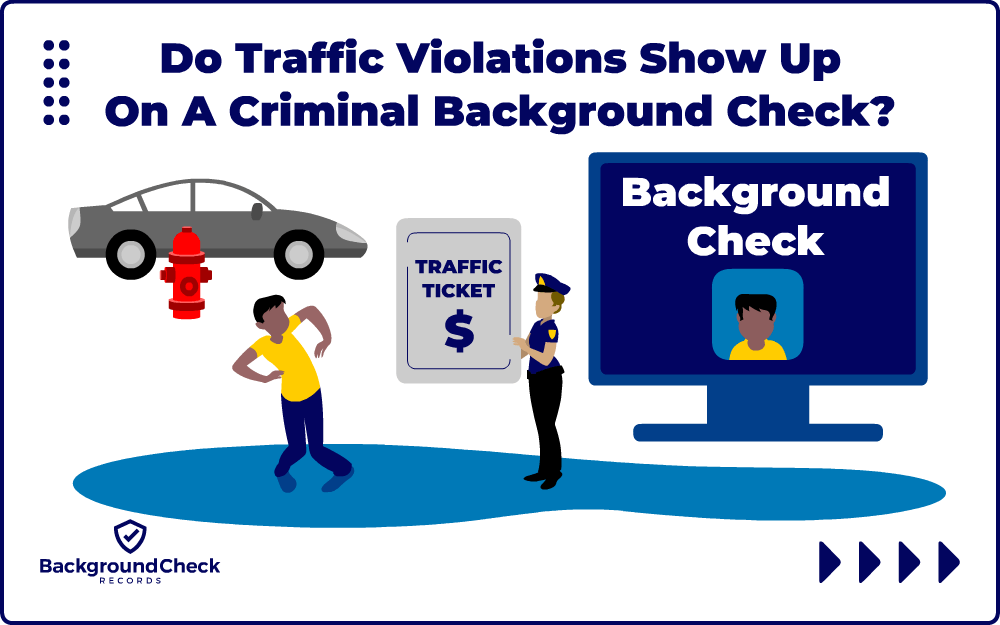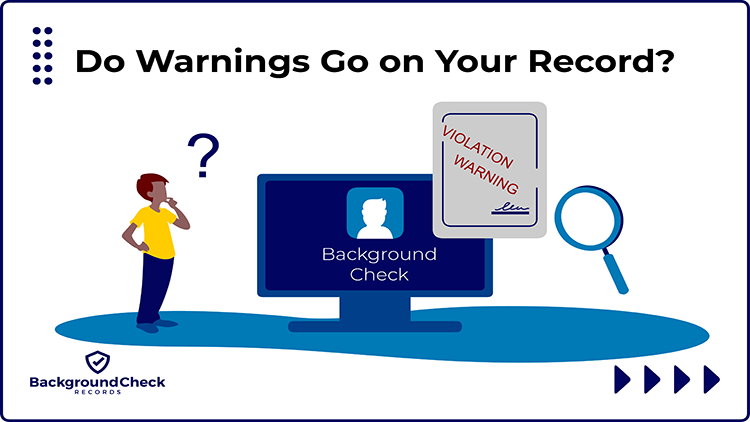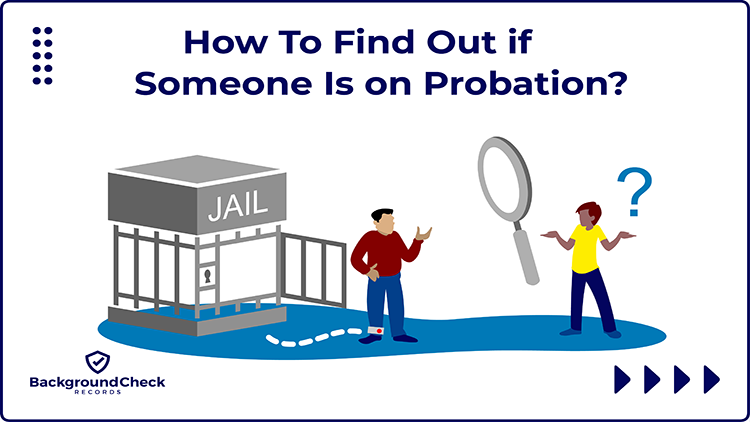Do Traffic Violations Show Up on Criminal Background Check? No
Traffic violations generally do not appear on standard background checks; however, among the 112,000 traffic tickets issued daily in the U.S., more severe violations might be included. Additionally, running a personal background check won’t necessarily reveal if a person has been charged with a traffic violation without their awareness.1
Therefore, if you’re not sure about the severity of your ticket or if it’ll show up, simply use the form above to check what’s on your record to be sure it doesn’t cause issues down the line.
Can an Employer Deny Me the Job for Traffic Misdemeanors? When Do Employers Care About Moving Violations?
In most cases, a speeding ticket or other traffic violation will not have an impact on a person’s ability to find gainful employment. Most traffic violations are considered minor infractions or even placed in the same category as civil citations; therefore, they are usually not included in criminal background checks.
Even for traffic violations that may fall under felony and misdemeanor class crimes, they do not necessarily mean an employer can deny a person a job just for a conviction of a more serious traffic offense.
The Equal Employment Opportunity Commission (EEOC) provides guidance to employers regarding criminal background checks and how they can be used in employment decisions.2 Basically, only those offenses that could directly impact a person’s ability to perform the job should be considered. As such, there are very limited times a person’s driving history will impact employability.
Traffic violations typically do not appear on a background check; however, in certain cases, employers might assess a candidate’s driving record as part of pre-employment screening, particularly if the position involves extensive driving responsibilities for the company. In such instances, the screener may review the candidate’s driving history before finalizing a decision.
Someone with a history of moving violations or motor vehicle accidents can be denied employment for a job that requires driving because it is an increased risk for the employer. Even non-profit background checks that look at driving histories can affect someone’s volunteer work.
Not all traffic violations, such as speeding tickets, will show up on a background check, so it is important to know when and where they will appear and the impact they can have. Also, each state dictates what is included in a criminal background check.
Do Speeding Tickets Show Up on Criminal Background Checks? At What Speed?
While most speeding tickets do not show up on routine criminal background checks, there are some exceptions. In most states, any speeding ticket showing the driver was going 15 miles per hour or greater over the posted speed is considered a misdemeanor (or higher depending on the speed and other conditions) that may or may not come along with points against their driving record.
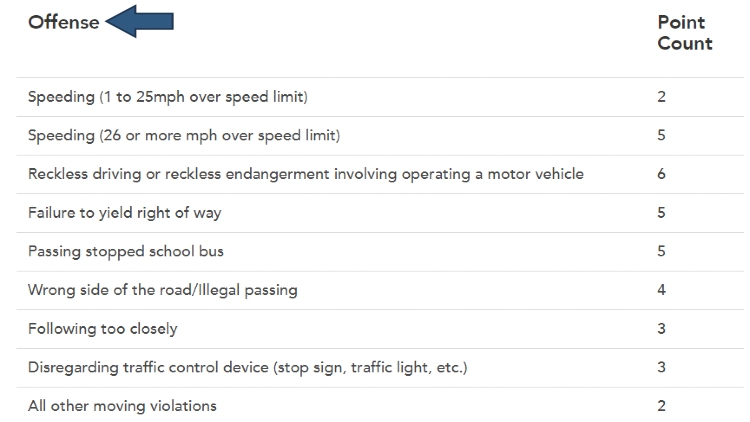
Conducting a personal background check might provide clarity on whether traffic violations are included in criminal background checks. While many may discover that most speeding tickets don’t appear, there are situations where they might be visible.
This table shows when speeding is considered a criminal (misdemeanor or felony) offense for each state, which means it could possibly show up on a background check.
| State |
The Point at Which Speeding is Considered a Serious Offense or Criminal Offense |
| Alabama |
Speeding 15+ mph over the posted speed limit |
| Alaska |
Speeding 20+ mph over the posted speed limit |
| Arizona |
Speeding 20+ mph over the posted speed limit or any speed over the posted limit in a school zone |
| Arkansas |
Speeding 15+ mph over the posted speed limit |
| California |
California does not have a misdemeanor charge for speeding; however, driving in excess of 100 mph is an infraction with serious consequences. |
| Colorado |
Speeding 25+ mph over the posted speed limit |
| Connecticut |
Speeding 60 mph but not over 85 mph on any road except interstate expressways. |
| Delaware |
Speeding 20+ mph over the posted speed limit or speeding while engaging in street racing |
| Florida |
Speeding 30-49 mph over the speed limit is a misdemeanor, 50+ is considered a felony |
| Georgia |
All speeding tickets in Georgia are misdemeanor offenses |
| Hawaii |
Speeding 30+ mph over the posted speed limit or driving 80+ mph on any road. |
| Idaho |
Speeding 15+ mph over the posted speed limit |
| Illinois |
Speeding 26+ mph over the posted speed limit |
| Indiana |
Under current Indiana law, whether speeding is an infraction or misdemeanor depends on the conditions and if there are any other violations accompanying the speeding (for example, speeding during inclement weather conditions can be a misdemeanor). |
| Iowa |
Speeding in general is a simple misdemeanor in Iowa. |
| Kansas |
Speeding 19+ mph over the posted speed limit |
| Kentucky |
Speeding 26+ mph over the posted speed limit |
| Louisiana |
Speeding 25+ mph over the posted speed limit |
| Maine |
Speeding 15-45+ mph over the posted speed limit depending on location |
| Maryland |
Speeding 15+ mph over the posted speed limit |
| Massachusetts |
Speeding is a misdemeanor in Massachusetts |
| Michigan |
Speeding due to drag racing is a misdemeanor offense |
| Minnesota |
Most speeding tickets are petty misdemeanors; however, driving at 100+ mph elevates speeding to a misdemeanor (criminal) offense |
| Mississippi |
All speeding tickets are misdemeanors in Mississippi. |
| Missouri |
Speeding 20+ mph over the posted speed limit. |
| Montana |
All speeding tickets are misdemeanors in Montana |
| Nebraska |
Nebraska treats all speeding violations as infractions. |
| Nevada |
All speeding tickets are misdemeanors in Nevada. |
| New Hampshire |
New Hampshire treats all speeding tickets as violations (infractions). |
| New Jersey |
New Jersey treats speeding tickets as petty offenses. |
| New Mexico |
All speeding tickets are misdemeanors in New Mexico. |
| New York |
New York treats all speeding tickets as infractions. |
| North Carolina |
Speeding 15+ mph over the posted speed limit or any speed over the speed limit in a school zone. |
| North Dakota |
North Dakota treats all speeding tickets as infractions. |
| Ohio |
All speeding tickets are misdemeanors in Ohio. |
| Oklahoma |
All speeding tickets are misdemeanors in Oklahoma. |
| Oregon |
All speeding tickets are misdemeanors in Oregon. |
| Pennsylvania |
Pennsylvania treats all speeding tickets as summary offenses (infractions). |
| Rhode Island |
Rhode Island treats all speeding tickets as civil violations. |
| South Carolina |
All speeding tickets are misdemeanors in South Carolina. |
| South Dakota |
All speeding tickets are misdemeanors in South Dakota. |
| Tennessee |
All speeding tickets are misdemeanors in Tennessee. |
| Texas |
All speeding tickets are misdemeanors in Texas. |
| Utah |
All speeding tickets are misdemeanors in Utah. |
| Vermont |
Speeding 30-60+ mph of the posted speed limit (depending on the location of the offense) is considered a serious violation that can result in incarceration. |
| Virginia |
All speeding tickets are misdemeanors in Virginia. |
| Washington |
Washington treats all speeding tickets as infractions. |
| West Virginia |
All speeding tickets are misdemeanors in West Virginia. |
| Wisconsin |
Wisconsin treats all speeding tickets as civil forfeiture incidents. |
| Wyoming |
All speeding tickets are misdemeanors in Wyoming. |
Each state also has a reckless driving statute that may or may not include excessive speed as a condition to be charged with that particular offense. Not all traffic violations carry the same penalties, nor do all traffic violations appear on criminal records.
When Do Traffic Violations Go on Your Criminal Record?
While speeding is the most common type of traffic violation, accounting for approximately 60% of all moving violations, it is not the only traffic offense a person can be cited or charged for.3
There are a number of traffic violations, and some of those are considered much more serious than others. Typically when a traffic violation can appear on a background check depends on the nature of the violation.
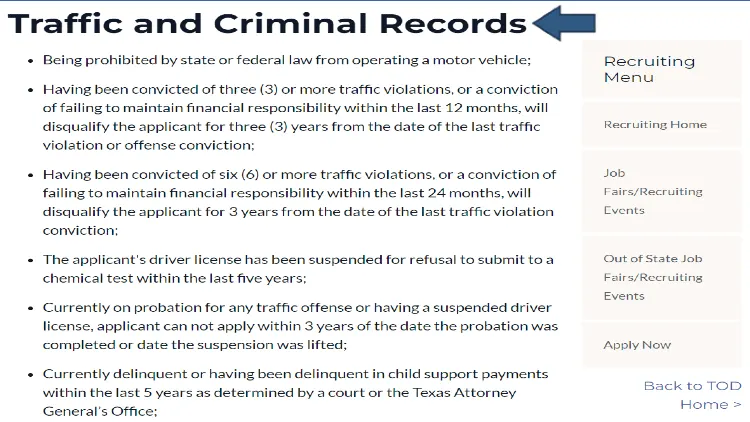
This table shows the traffic violations that are most likely to appear on a criminal record check. The charges below can and do show up on record screenings, and knowing they are there can help prepare for how they impact employment.
| Traffic Offenses That Are Criminal In Nature |
Brief Explanation of Offense |
| DUI/DWI |
Driving while under the influence of drugs or alcohol is a criminal traffic offense that can result in incarceration, large fines, and loss of driving privileges. These are usually misdemeanor charges. |
| Driving While Suspended or Driving While Revoked |
Driving after a person’s license has been suspended or revoked is a misdemeanor traffic violation that can result in incarceration, permanent revocation of driving privileges, and large fines. |
| Hit and Run |
This is when someone causes a motor vehicle accident or strikes a pedestrian with a vehicle and then flees from the scene before law enforcement can arrive. Depending on the level of damages, it can run can be a misdemeanor or felony. When the hit and run involve bodily injury or death to another, it can be charged as a felony offense. |
| Vehicular Homicide |
When a person causes the death of another through reckless driving or other traffic violation, they can be charged with vehicular homicide. Unintentional vehicular homicide can be classified as a misdemeanor. Aggravating (worsening) factors can elevate this crime to a felony. |
| Reckless Driving |
Reckless driving is typically charged as a misdemeanor and can include excessive speeds (greater than those for misdemeanor speeding), engaging in street racing, changing lanes improperly, and other reckless use of a motor vehicle. |
| Habitual Traffic Offender |
If someone habitually violates traffic laws, the charges can be elevated to misdemeanor charges rather than infractions.4 |
It is possible to be charged with a crime without awareness, including traffic offenses such as hit and run or vehicular homicide, which may result in a secret indictment; thus, running a personal background check can confirm whether traffic violations appear on criminal background checks and whether one might be unaware of it.
Felony traffic charges can significantly affect an individual’s life, and the duration of such charges on one’s record can vary, potentially lasting for years or even a lifetime.
These are just a few of the traffic violations that a person can be charged with. Knowing when and how they show up can help prepare for any potential negative consequences.
When Are Traffic Violations Reflected in Criminal Background Checks? When Do Traffic Tickets Appear on Background Checks?
From the moment it is a pending charge to the completion of sentencing and subsequent removal from a record (when allowed by state law), a criminal traffic violation can and will appear on a person’s criminal record report. Each state has its own laws regarding how long criminal convictions must remain on a person’s record before it can be sealed or expunged.
The duration of a misdemeanor on one’s record varies depending on the state and the outcome of the charges, including conviction, dismissal, or deferment. Traffic violations classified as misdemeanor charges fall within this category.
This is also true for traffic violations that are criminal in nature such as those in the table above. These matters can show up on a criminal record check.
Speeding cases typically do not show up on a routine background check, but they can show up on a driving history check. A driving history background check is conducted when a person is applying for a job that requires the use of a motor vehicle in daily job duties.
The types of jobs that may require a background check to include motor vehicle violations (from speeding to more serious offenses) include taxi drivers, trucking or shipping companies, delivery services, rideshare companies such as Lyft or Uber, limo drivers, highway maintenance workers, law enforcement or other government agencies.5
Traffic violation history is also checked when a person appears in traffic court for a violation or ticket. This helps determine the amount the fine is set and other restrictions that may be imposed when a person is found responsible or guilty of the violation. Each state and federal government uses some kind of sentencing guidelines when imposing penalties for traffic violations.6
Finally, law enforcement can run driving history on a vehicle when making a traffic stop for a new violation.
Do Speeding Fines Show Up on Police Checks?
When law enforcement performs a driving history check, it can show if a person has had moving violations in the past and if those charges were dismissed or if the person was found responsible. This check typically does not show the fine that was imposed by the courts, but it is possible if it is a comprehensive check.
There are certain obligations a person will have to meet if they are subject to a speeding ticket or other moving vehicle violation. The impact has on their job, housing or other aspects of life depends on the nature of the offense.
Are You Required to Report Speeding Tickets on Job Applications?
Regarding criminal background checks, traffic violations generally don’t surface, and typically, you’re not obligated to disclose a pending speeding ticket or previous ones on a job application in most situations.
It is acceptable to check “no” on an application regarding criminal convictions if the only thing a person has on their record is a minor traffic violation such as speeding.
Special Consideration for Commercial Driver License (CDL) Jobs
CDL jobs are an exception where a person may be required to reveal if they have been convicted of speeding in excess of 15 miles per hour. Per federal statute, 6.2.5 of the Motor Carrier Safety Planner, speeding 15 mph or more over the posted speed limit must be reported and is considered a serious offense.7
Revealing a speeding ticket is limited to the direct impact it can have on a person’s ability to perform a certain job.
There are other offenses that can impact a person’s employment, or that may show up on a background check.
If I Drove Without a License, Will it Show Up on a Background Check?
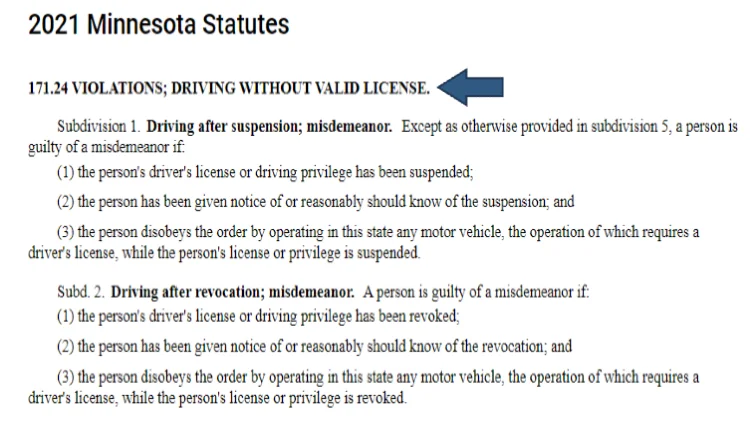
Driving without a license is considered a lower-level criminal offense (misdemeanor), and because of this, the answer is yes, it can show up on a criminal background check depending on the outcome of the case and the state in which the charge was filed.
There are typically two distinctions made regarding driving without a license. The first covers situations where a license was never issued in any state, it has expired and was not renewed, or the person simply forgot to carry it with them while operating a motor vehicle. This is considered a correctable offense in most cases, and the person only needs to present a valid license to the district attorney or court to have the matter dismissed.
The second case of driving without a license is when someone operates a motor vehicle while under a suspended or revoked license. This is a higher-class misdemeanor that carries a greater punishment.
Either case has the potential to show up on a criminal background check; however, it is more likely in the case of driving on a revoked or suspended license. In either case or that of other traffic violations, it is important to know what shows up on a background check.
How to Run a Traffic Violation Criminal Background Check on Yourself
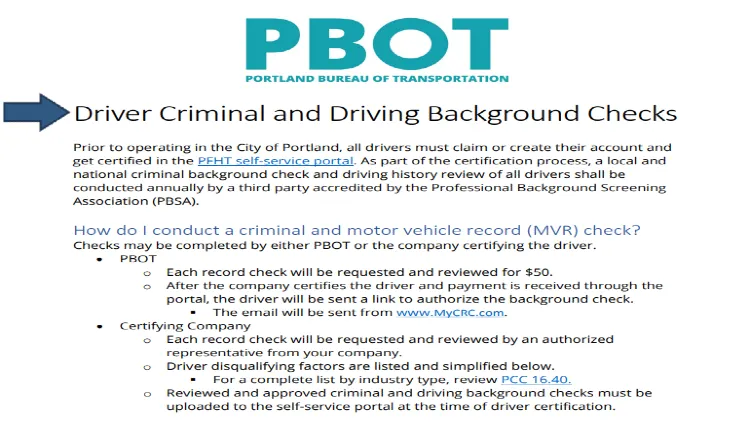
There are methods available for individuals to run a traffic violation criminal background check on themselves, which can provide clarification regarding whether traffic violations appear on such checks. Generally, the answer to this question is “no,” but conducting the check can offer assurance.
The first way is to conduct a personal background check using a third-party (commercial) search site. A commercial search company can run a national driving history check on a person to see if there are any moving violations that do appear on the record.
Another way is to check with local law enforcement or courts to see if there is a traffic violation history on someone. Most clerks of court offices have public computer terminals that anyone can access to look up criminal history. This could reveal whether or not someone has a traffic violation in that jurisdiction.
The third way is to learn about traffic history if it is revealed on a pre-employment background check. This is one that is conducted by a prospective employer to see if the person has a criminal history that will impact job performance.
When someone gets a traffic violation, they will need to resolve the matter as quickly as possible, especially if it may impact their job.
What Should You Do Do if You Get a Traffic or Moving Violation?
When someone gets a traffic ticket, there are things they can do to minimize the impact of the ticket on their lives.
Hire an Attorney
The first thing a person should do when they get a moving violation is to hire an attorney who deals with traffic offenses or get a court-appointed attorney. An attorney may be able to help reduce the charges to an infraction or get the charges dismissed altogether.
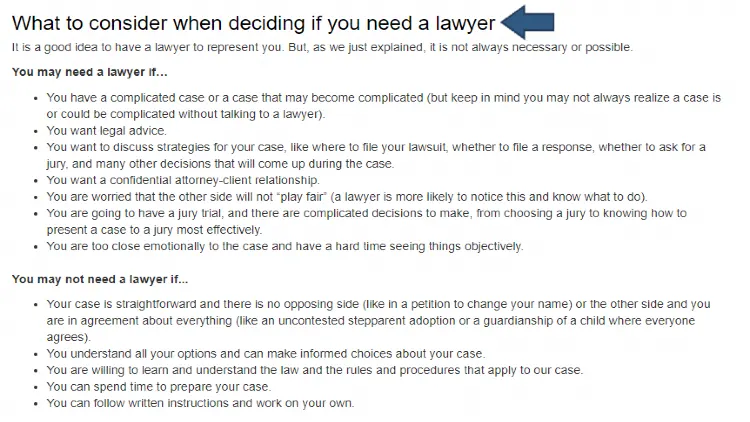
Another advantage to an attorney is it levels the playing field in the courtroom protecting the rights of the person charged or cited with a violation. An attorney can help fight the ticket in court reaching a verdict of not responsible.
This is especially important in more serious matters such as DUI/DWI or hit and run, or violations that were cited following a motor vehicle accident.
Representing Themselves
While this may not have the same outcomes as fighting a ticket with an attorney, a person does have the option to represent themselves in traffic or criminal court when charged with a moving violation.
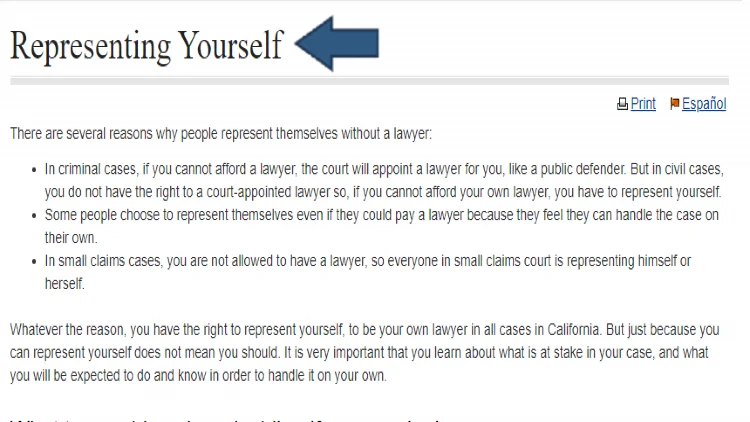
They can make their own deal with the district attorney to take a defensive driving course in exchange for a lesser charge or a dismissal of the citation. They can also provide proof of fixing a correctable issue when cited as a traffic violation. For example, if they are charged with an expired tag, they can show proof the matter has been fixed resulting in a dismissal.
Expunging Records
Each state has its own rules and laws regarding expunging records. Some traffic violations are eligible to be expunged or sealed in states that allow this. Some states automatically remove or seal records when the case is dismissed.
Having charges dismissed doesn’t always result in a criminal record, but it’s advisable to try to have dismissed charges removed if feasible.
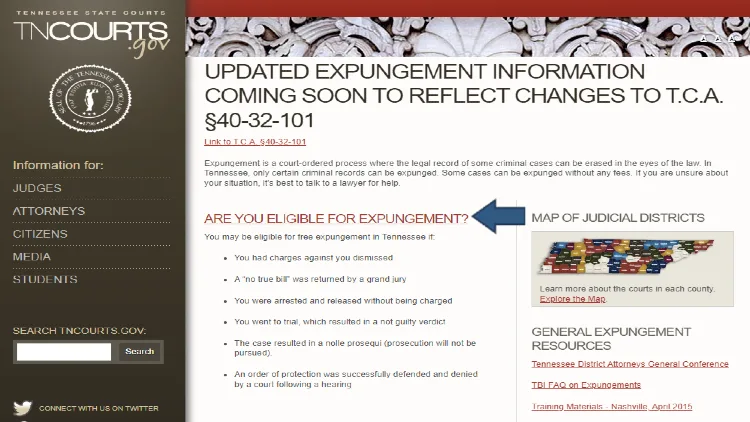
States that automatically remove traffic violations that have been dismissed are listed below.
- California
- Connecticut
- Delaware
- Georgia
- Illinois
- Kentucky
- Michigan
- Nebraska
- New Jersey
- New York
- North Carolina
- North Dakota
- Oklahoma
- Pennsylvania
- South Carolina
- South Dakota
- Tennessee
- Texas
- Utah
- Virginia
Some states also have processes where a person can petition to have dismissed charges or minor convictions removed from their record by sealing or expunging it.
Having a traffic violation can impact a person’s ability to get a job, but it doesn’t have to be the final deciding factor. There are things a person can do to get a job even with a traffic violation.
How to Get a Job Driving With a Traffic Violation
When traffic violations appear on criminal background checks, individuals may wonder how to prevent them from affecting job prospects. In most cases, traffic violations do not impact background checks significantly. However, they can sometimes surface in targeted background checks.
Despite this, there are strategies individuals can employ to minimize any negative impact.
First is making sure all fines and fees have been paid in full. This is true for both criminal citations and civil violations. Civil traffic violation fines, when unpaid, can become criminal charges for failure to comply with the court’s order.
Neglecting to pay fines can lead to a bench warrant. Passing a background check with a warrant is feasible, but having an outstanding warrant significantly complicates the process.
If a person has been court-ordered to complete a defensive driving course or other classes due to a criminal traffic charge, they should make sure they have successfully completed the course.
If an individual was placed on probation following a criminal traffic violation, they aim to ensure they’ve fulfilled all probation terms. This probation appears on a background check because it’s associated with a criminal charge.
If a person has a pending traffic violation that will require them to be away from the job for court, they should be upfront with their employer. Most employers will not hold a traffic ticket against someone, but they will take being away from the job without explanation seriously.
Look at the company’s driving record policy before applying to make sure any violations the person has will not keep them from being hired. For example, if a company says someone cannot have a moving violation within the last three years, but the person had one a year ago, this can keep them from being hired.
Find out what kinds of background checks will be performed by the company. Find out if it is a level 1, level 2, or level 3 background check and what the company will search for. Also, companies have to get the person’s consent to conduct a background check used for employment consideration per the Fair Credit Reporting Act.8
Finally, know what the laws are in the city or state where the person is applying. A background check in Miami may not reveal the same thing as an Iowa background check or Arkansas background check regarding traffic violations.
Certainly, traffic violations vary widely, spanning from minor infractions to felony charges based on the severity of the offense. However, it’s important to note that the majority of traffic violations, primarily for speeding, typically do not pose significant employment-related concerns when considering whether they appear on criminal background checks.
Frequently Asked Questions
For Employment, What Is Considered a Bad Driving Record?
For employment purposes, a bad driving record is typically considered multiple driving offenses in a short amount of time, or driving offenses such as DUI, driving while revoked, hit and run, or multiple accidents resulting in property damage or injury to others.
Do Traffic Tickets Appear on an FBI Background Check?
Typically, average speeding tickets or traffic tickets will not show up on an FBI background check; however, moving violations that are considered more serious, or resulted in the person being taken into custody and fingerprinted (such as DUI or hit and run) have a better chance of appearing on an FBI criminal history search.
1 Jones, B. F. (2019, March 10). 7 Interesting Driving Citation Statistics. RHINO Lawyers. Retrieved August 29, 2022, from <https://www.rhinolawyers.com/7-interesting-driving-citation-statistics/>
2 Arrest and Conviction Records: Resources for Job Seekers, Workers and Employers. (n.d.). Equal Employment Opportunity Commission. Retrieved August 29, 2022, from <https://www.eeoc.gov/arrestandconviction>
3 Law, H. (2018, May 7). 3 Common Traffic Violations and Crimes – Grant and Hoffman Law. Grant & Hoffman Law. Retrieved August 29, 2022, from <https://grantandhoffmanlaw.com/blog/2018/05/07/3-common-traffic-violations-and-crimes/>
4 Jones, B. F. (2022, February 2). What Traffic Violations Are Considered Criminal Offenses? RHINO Lawyers. Retrieved August 29, 2022, from <https://www.rhinolawyers.com/what-traffic-violations-are-considered-criminal-offenses/>
5 Do Background Checks Reveal Driving Records? | Employment Background Checks. (n.d.). The Law Office of Hillel Traub. Retrieved August 29, 2022, from <https://www.traublaw.com/do-driving-records-show-up-on-employment-background-checks/>
6 USSC Guidelines. (n.d.). USSC Guidelines. Retrieved August 29, 2022, from <https://guidelines.ussc.gov/ac/766>
7 6.2.5 Disqualification of Drivers (383.51). (n.d.). fmcsa/csa. Retrieved August 29, 2022, from <https://csa.fmcsa.dot.gov/SafetyPlanner/MyFiles/SubSections.aspx?ch=23&sec=67&sub=158>
8 Lincicum, D., & Fair, L. (2017, April 28). Background checks on prospective employees: Keep required disclosures simple. Federal Trade Commission. Retrieved August 29, 2022, from <https://www.ftc.gov/business-guidance/blog/2017/04/background-checks-prospective-employees-keep-required-disclosures-simple>

